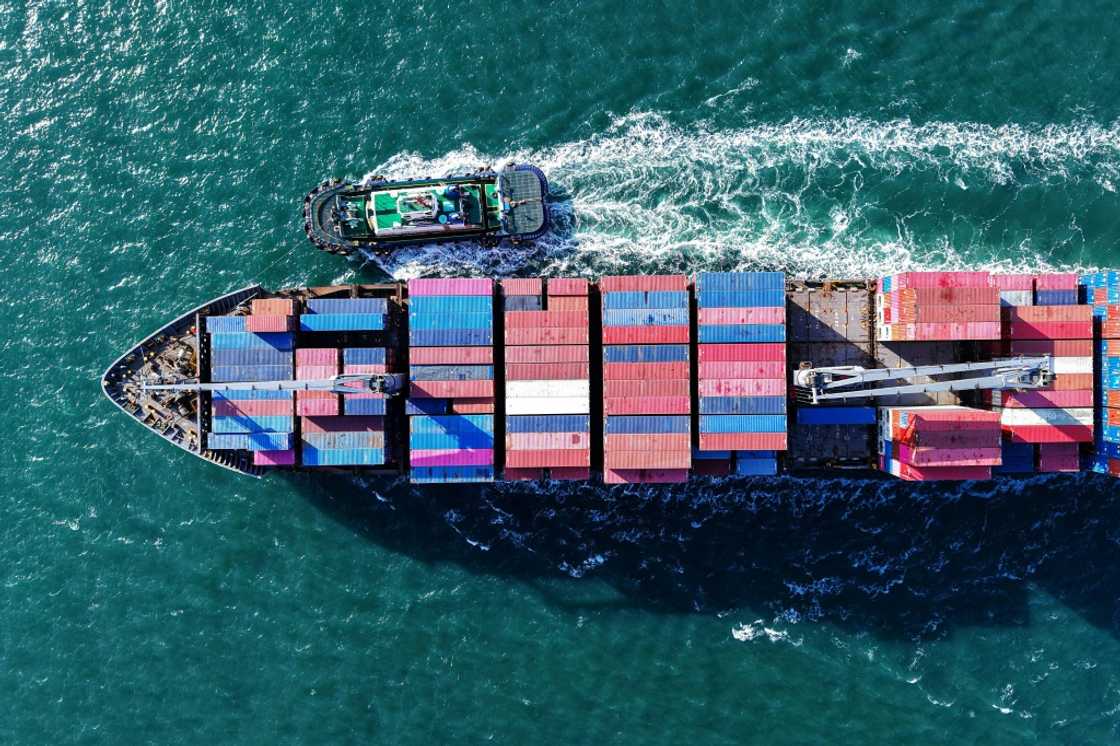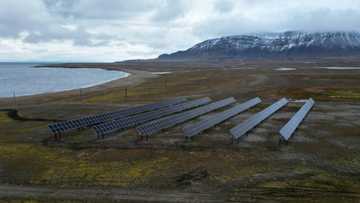UN shipping body approves global carbon pricing system

Source: AFP
Member states of the International Maritime Organization have voted in favour of a global pricing system to help curb maritime carbon emissions, the UN shipping body announced Friday.
From 2028, all ships will be required to use a less carbon-intensive fuel mix or face financial penalties, the IMO said.
The carbon pricing measure must now be formally adopted at an IMO assembly in October.
A majority of members -- 63 states -- voted for the carbon pricing system, including the European Union, Brazil, China, India and Japan.
Sixteen states voted against the measure, including major oil producers Saudi Arabia, Russia and the United Arab Emirates.
Pacific Island states abstained from the vote, deeming the proposals insufficient to meet decarbonisation goals.
The United States did not participate in the vote, with a wave of environmental rollbacks by President Donald Trump, including carbon limits on power plants, tailpipe emissions standards and protections for waterways.
The agreement follows a week of negotiations in London to decide which mechanism to adopt to reach carbon neutrality in shipping by 2050.
Those who do not meet the guidelines will have to pay annually for every tonne of greenhouse gas emissions that exceeds the targets set.
The IMO said the funds raised will be used to "reward" zero or near-zero greenhouse gas emissions technologies and to financially support developing countries to transition to lower-emissions shipping.
'Groundbreaking moment'
Island nations in the Pacific and Caribbean, particularly vulnerable to the effects of climate change, supported a more ambitious universal carbon levy on maritime transport.
"We cannot support an outcome that does not live up to the agreed strategy," the Solomon Islands' minister of infrastructure development, Manasseh Maelanga, said after the nation abstained.
A French source told AFP that "the ambition is not what we had hoped for in terms of trajectory but it is greater than what already exists within the European framework".
Shipping accounts for nearly three percent of global greenhouse gas emissions, according to the IMO.
"This is a groundbreaking moment for the shipping industry, which should signal a turning of the tide on greenhouse gases from global shipping," Mark Lutes, senior advisor at the World Wildlife Fund for Nature, said in a statement.
"However, key aspects of this agreement fall short of what is needed and risk blowing the transition off course," he added.
The International Chamber of Shipping, representing shipowners and operators, welcomed the fact "that governments have understood the need to catalyse and support investment in zero emission fuels".
However it expressed concern "that this may not yet go far enough in providing the necessary certainty".
"It is a framework which we can build upon," it added.
Constance Dijkstra, a policy manager at the Transport & Environment lobby group said a switch to biofuels was not the answer, describing the mass production of such energy as "very worrying for deforestation", even if Brazil disagrees.
IMO member countries have agreed also to create a "control area" in the northeast Atlantic, which limits the use of the most polluting marine fuels around the coasts of Western Europe, Iceland and Greenland.
PAY ATTENTION: Сheck out news that is picked exactly for YOU ➡️ find the “Recommended for you” block on the home page and enjoy!
Source: AFP





